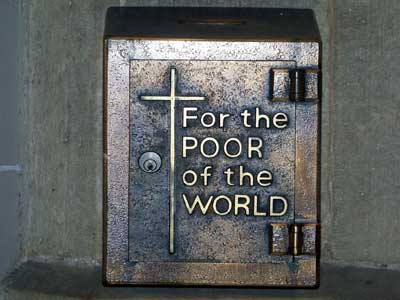The aura of moral goodness coming from within charitable organisations can blind their employees and volunteers, according to new research from the Rotterdam School of Management, Erasmus University.
Lead researcher, Dr Isabel de Bruin found that people in charities can glorify their charities’ noble goals, noble values, and noble people. This self-glorification can lead to unethical behaviour, which she calls the “NGO halo effect”.
A survey conducted with 256 employees of various charities across the globe in 2023 showed that respondents strongly believed their cause to be ‘sacred', and 'significant', and felt deeply connected to it. Interviews also showed respondents perceive their charity’s mission as ‘part of their DNA’, ‘a life calling’, and ‘embodiment of their moral identity.’
An internal perception of moral goodness, Dr de Bruin says, leads to a tendency for self-glorification in which the mission, its underlying values and the people within the organisation are idealised to the extreme. Because they are idealised, the charity’s mission, morals, and people are then prioritised above other considerations. For example, when people in the charity are inherently trusted, then trust may be prioritized over upholding the charity’s rules regarding ethics and integrity. Dr de Bruin refers to this as ‘moral naivety’. In the interviews conducted, moral naivety was identified as a frequent explanation for transgressive behaviour such as discrimination, sexual harassment or bullying; in 45 per cent of cases of such behaviour noted in the interviews, colleagues were given another chance while rules regulating such behaviour were weakly, or not, implemented.
“When someone works for a charity, it can affirm one’s identity. Professionals and volunteers carefully select which organisation they join because their personal beliefs and values are aligned with those of the charity. But there are potential pitfalls to a strong sense of identification. You then expect people in the organization to behave according to your expectations, and when they don’t, it can lead to cognitive dissonance. It can be psychologically easier to downplay or ignore unethical behaviour as it means asking fewer, harder questions about yourself and your perceived identity as good.’
“A strong sense of identity with the mission can also explain an ‘ends-justifies-the-means-mentality’. Surveys showed that charity staff and volunteers at charities strongly believe that achieving their charity’s mission by any means necessary is OK. This can extend to organisations manipulating data to exaggerate the impact of their work to raise more funds for their mission,” says Dr de Bruin.
The research highlights the ‘NGO halo effect’ as a new risk factor associated with unethical behaviour in and by charities. It calls upon the need for oversight of and reflection in charities regarding the extent of the NGO halo. The NGO halo effect can be considered an additional factor in preventing, detecting, and addressing charities’ unethical behaviour.
















Related Items
Better water management helps halt the march of the desert in Rajasthan
Heal Thyself First, Doctor! The rise of unethical medical practices in India...
Water Management remains a daunting challenge in Braj Mandal